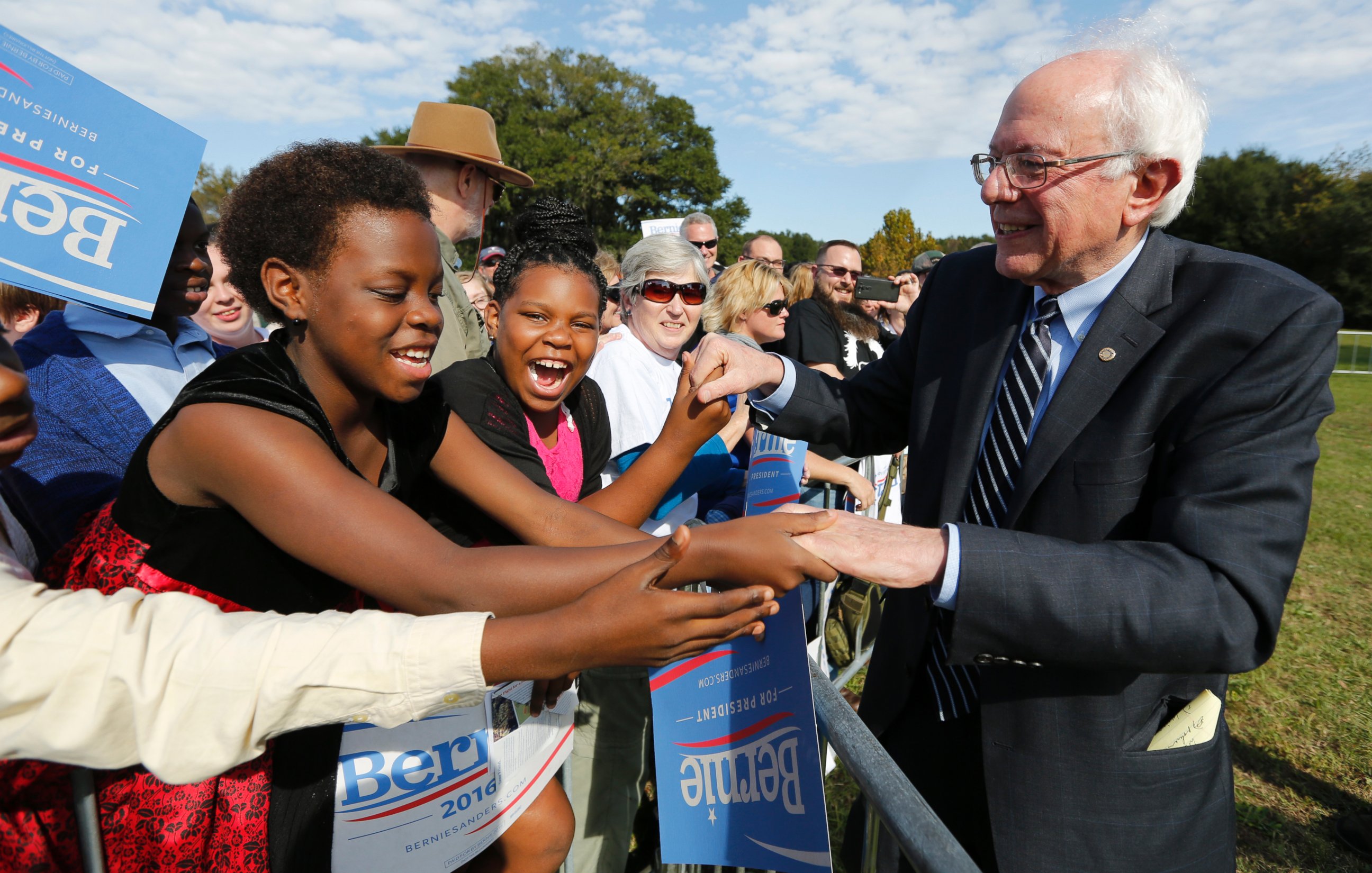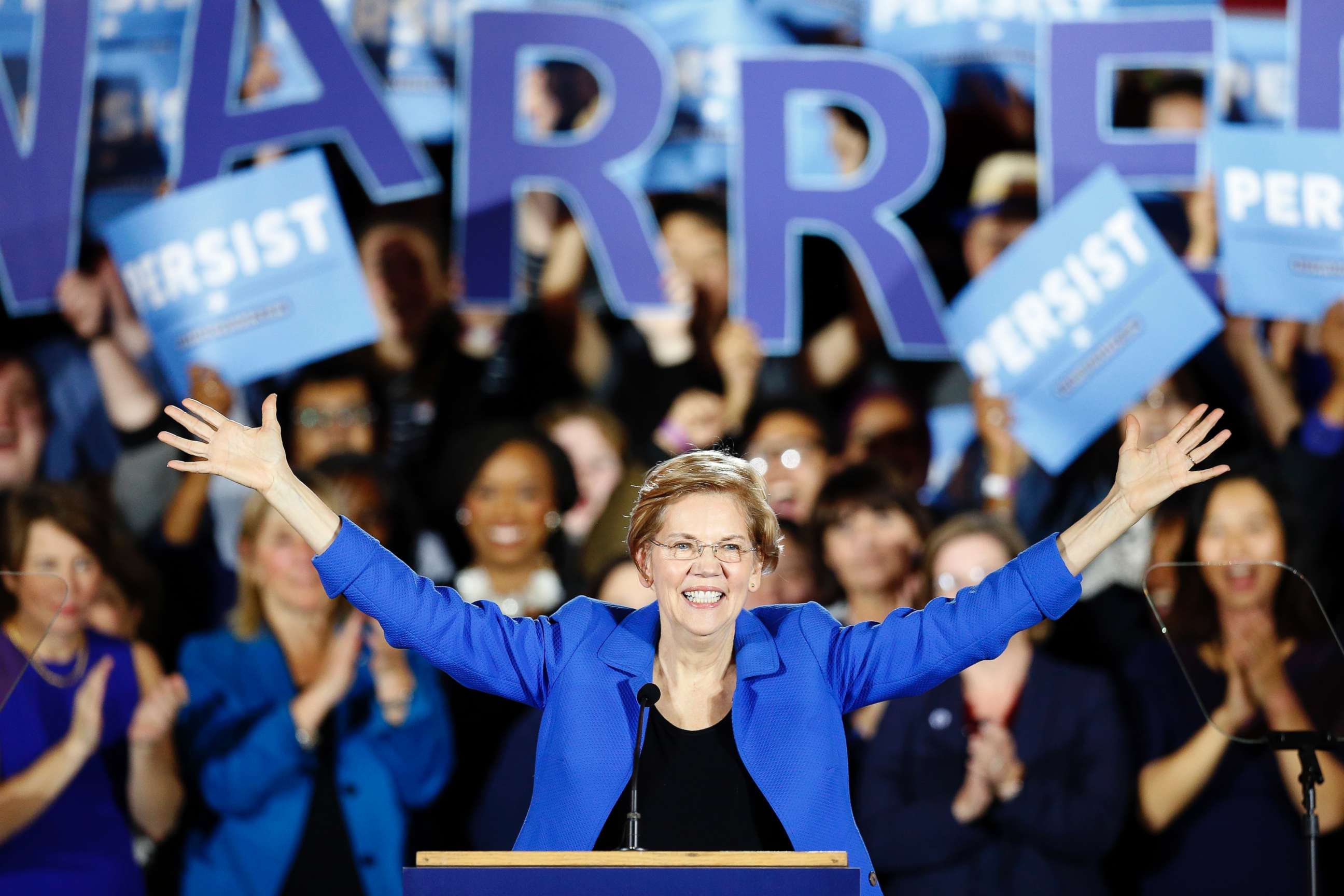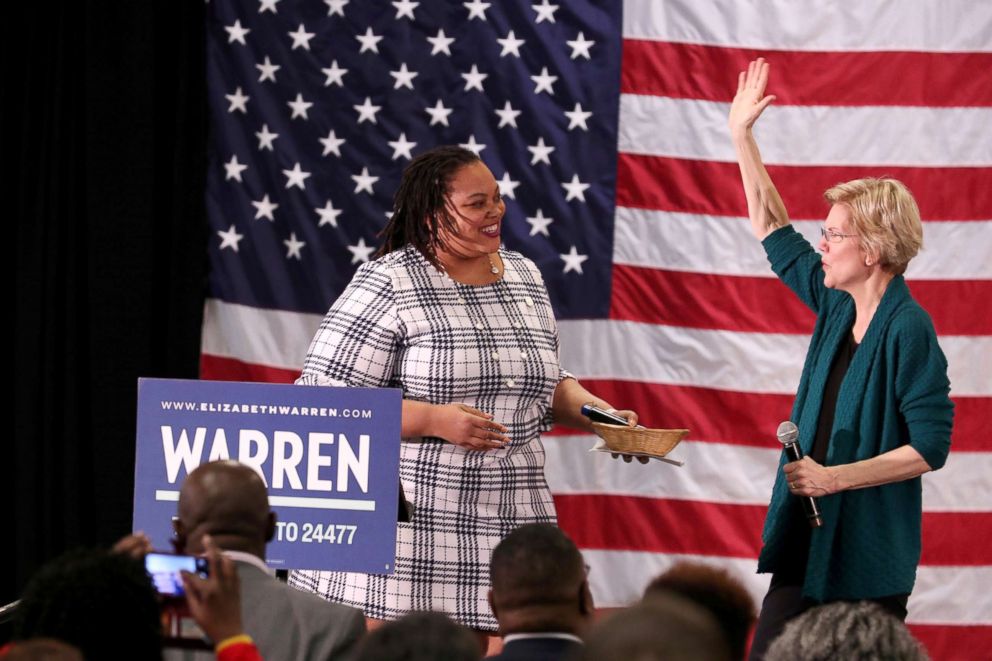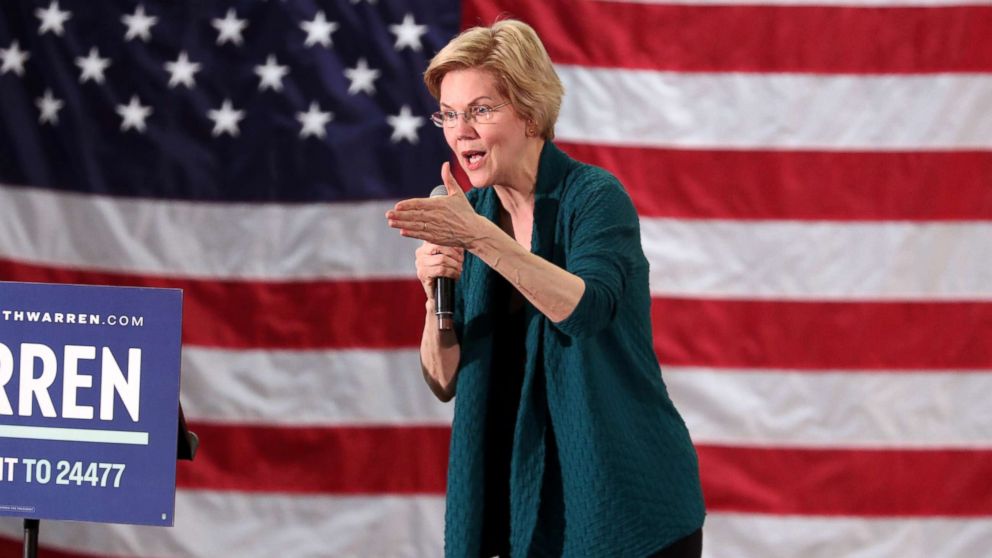2020 Democratic presidential hopefuls swing through South in quest for black voters
Massachusetts senator and presidential hopeful Elizabeth Warren pushed to galvanize black voters and local Democrats in the Delta region during her three-state tour in Tennessee, Mississippi, and Alabama, a region that has typically voted Republican in past U.S. elections.
"I’m running to be president of all the people. And it’s important to go around the country and have a chance to talk with people face-to-face," Warren said while kicking off her tour in front of 500 rally attendees inside Douglass High School, a predominantly black high school, in North Memphis, Tennessee, on Sunday.
Her tour of the deep South is the latest in a series of 2020 presidential candidate swings through predominantly black cities and neighborhoods as Democrats work to court that voting bloc. This weekend, former Texas Rep. Beto O'Rourke, Sen. Cory Booker and South Bend, Ind. Mayor Buttigieg are all headed to South Carolina -- a state where African-Americans make up nearly 30 percent of the population. In January, Sen. Bernie Sanders' swing through the Palmetto State included speeches at churches, community centers and colleges where he reminded voters repeatedly about his civil rights upbringing, having marched with Dr. Martin Luther King Jr. during the March on Washington as a college student.
African-Americans are expected to have significant influence in the Democratic primaries and minorities will account for a third of eligible voters in 2020, according to Pew Research.

One of the topics a number of Democratic candidates have brought up, seemingly aimed at African American voters, is the centuries-old debate over some form of reparations for the descendants of Africans brought to America and enslaved and those impacted by subsequent discriminatory policies such as segregation.
"I believe it’s time to start the national full-blown conversation about reparations in this country," Warren said in a CNN town hall at Jackson State University in Mississippi on Monday.
"I support the bill in the House to appoint a congressional panel of experts, people that are studying this and talk about different ways we may be able to do it and make a report back to Congress, so that we can as a nation do what's right and begin to heal," Warren continued.
The Massachusetts senator is joined by other presidential hopefuls such as Booker, author Marianne Williamson, former Housing and Urban Development Secretary Julian Castro and Calif. Sen. Kamala Harris who have all said they support some form of reparations. Sanders, when pressed during a recent CNN questioned "what does that mean" but underscored that his policies would help funnel money into impoverished communities and help people "hurt from the legacy of slavery."
Always a great time joining the @breakfastclubam with @cthagod and @djenvy, chatting about bail reform, legalizing marijuana, and what we can do to ensure everyone has a fair shot at the American Dream. All that was missing was @angelayee. pic.twitter.com/njlU2fIOed
— Kamala Harris (@KamalaHarris) February 11, 2019
"America has a history of 200 years of slavery. We had Jim Crow. We had legal segregation in America for a very long time," Harris said on the nationally syndicated radio show, ‘The Breakfast Club which is hosted by DJ Envy, Angela Yee and Charlamagne tha God and is popular in urban markets. "People aren’t starting out on the same base in terms of their ability to succeed and so we have got to recognize that and give people a lift up."

During Warren's trek through the Delta region, she met with prominent black local leaders to promote her affordable housing plan.
In Cleveland, Mississippi, Warren met with senator Willie Simmons and civil rights leader Amzie Moore, the first black person in Cleveland’s Bolivar County to receive a home loan, to discuss poverty and local housing issues. In her second Mississippi stop, she toured with Mayor Errick Simmons in Greenville, Mississippi, a city of roughly 30,000, where local officials estimate just over 2,000 people are in need of housing.
"Building new housing in our community is a big priority for us just because of the lack of affordable, quality housing," said Daniel Boggs, CEO of the Greater Greenville Housing & Revitalization Association, who attended a housing roundtable with Warren and Simmons. His organization has about 700 applicants who are hoping to receive affordable units.
Warren stressed that communities should be empowered to create affordable housing solutions.
"It’s not for the federal government to come here to Greenville and say, 'Build this, or build that.' It’s for the federal government to say, ‘what’s your plan to provide for your people, and how can we be a good partner in that?'" Warren said. "Being a good partner, in this case, means money. And we need to put the money on the ground in places like Greenville.
When asked how her proposed housing plan will affect African-Americans, a demographic that is far less likely to be homeowners compared to their white counterparts according to a Pew research study, Warren told ABC News: "this bill also has a special provision in it to try to help close the black-white wealth gap and housing gap. It particularly targets people living in areas that were formally redlined and people who were cheated during the housing crash and offers specific help to them. And it gives them a chance to build wealth over time."
On the third leg of her tour, U.S. Representative Terri Sewell, D-Ala., gave Warren a tour of Selma, starting at the historic Brown Chapel AME Church and ending at the historic Edmund Pettus Bridge, as journalists and photographers documented their conversation early Tuesday.
Brown Chapel was the meeting place for civil rights protesters who attempted to cross the Edmund Pettus Bridge before being attacked by law enforcement in what became known as "Bloody Sunday." The horrific event was the catalyst for the Voting Rights Act of 1965, the 15th amendment signed by Lyndon B. Johnson, protecting African- Americans’ right to cast their ballot.
"I believe we ought to appeal all the voter suppression laws," Warren told ABC News while promoting her push to end the electoral college on said May 19. "We need to be an America where voting matters for everyone and part of that is making sure candidates come to all of America and make the case for why they should be president of the United states."
The Senator continued to rally support for her call the end the Electoral College at an organizing event in Birmingham.
"Start pushing your state legislature to sign on as well!" said Warren to a crowd that responded with audible hesitation.

"This is not a red versus blue. Push these guys here. You can do this as the state level. If nothing else you can make them a little uncomfortable. Don’t take no for an answer on this," Warren told the crowd.
The crowd’s hesitation may stem from the deep frustration of democratic voters in Alabama who often feel like they are outnumbered in the majority Republican state.
"We need to have our say. Our votes should count and that’s the problem right now. I voted in every election since I turned 18 and especially here in Alabama I feel like I don’t really have a say because of the Electoral College," said Jessica Huff, a public school teacher who attended Warren’s Birmingham rally.
ABC News' Beatrice Peterson contributed to this report.




